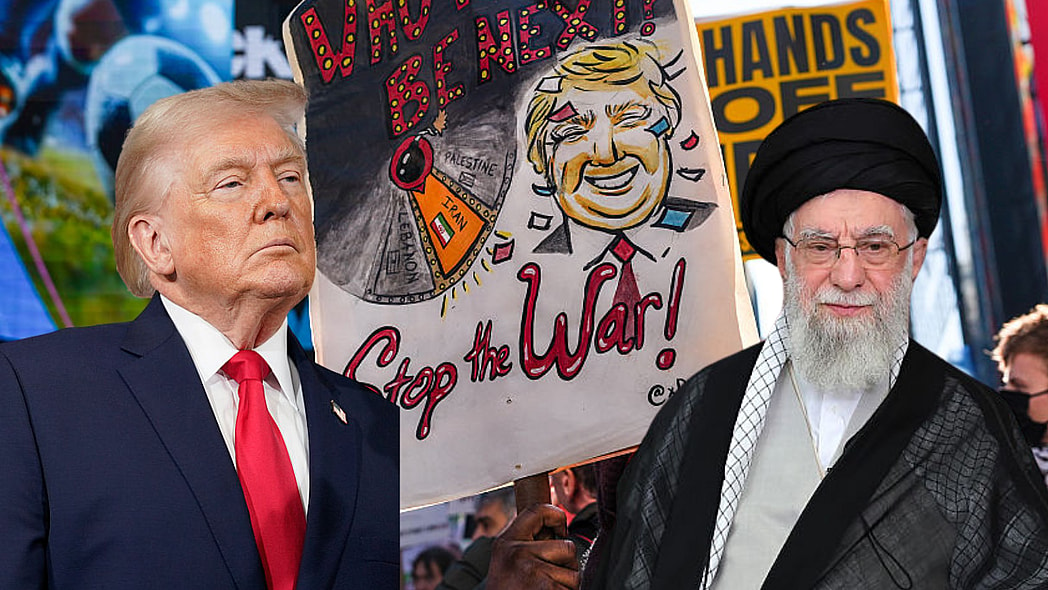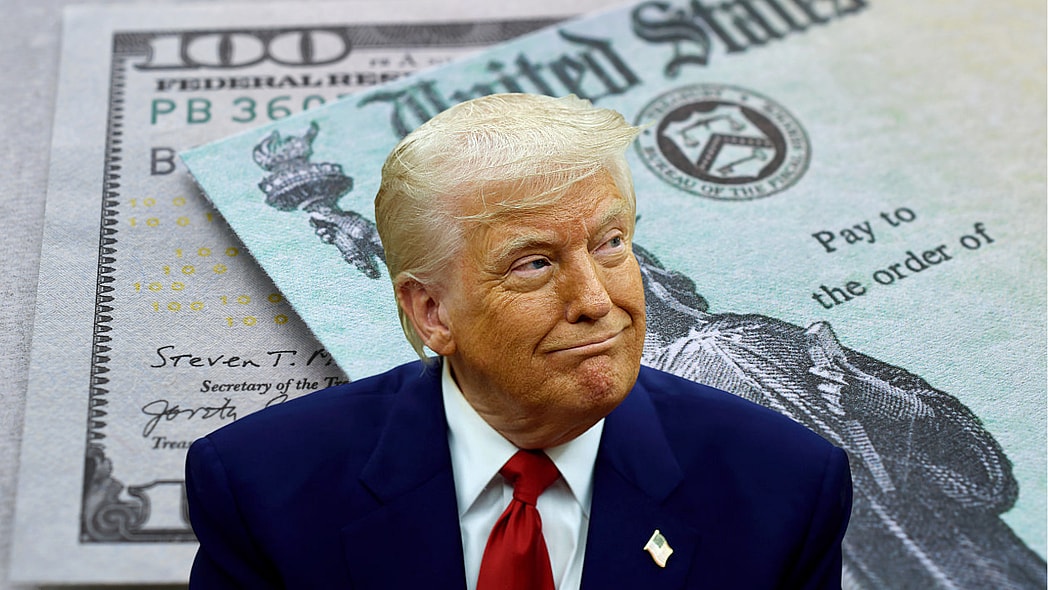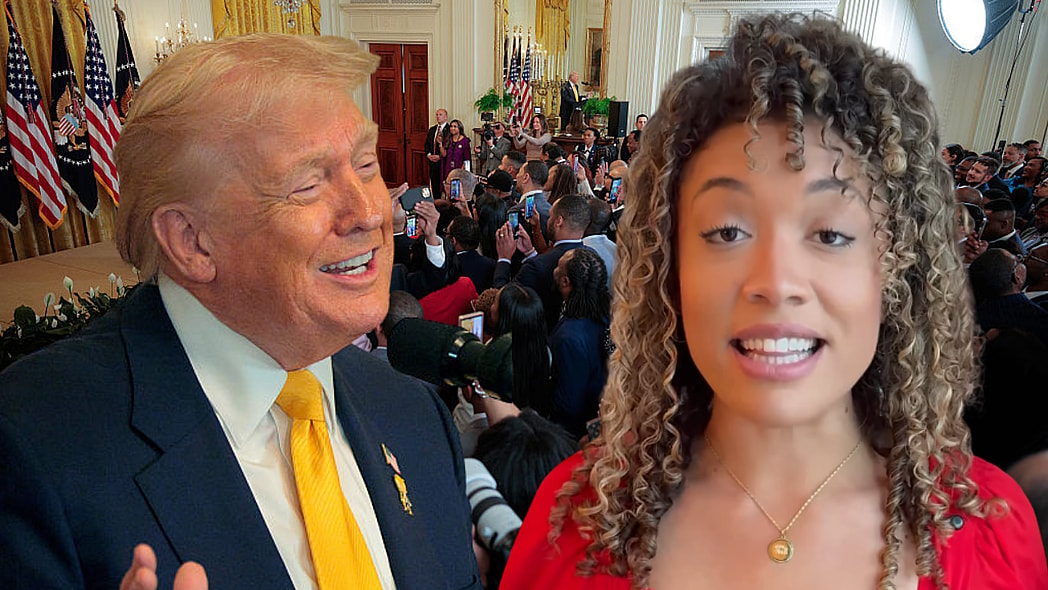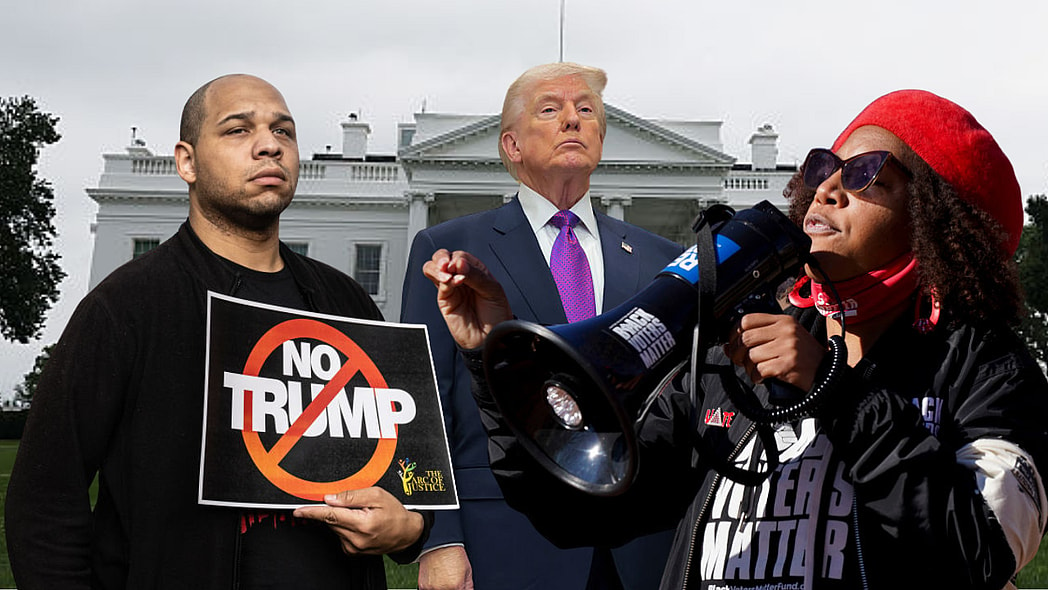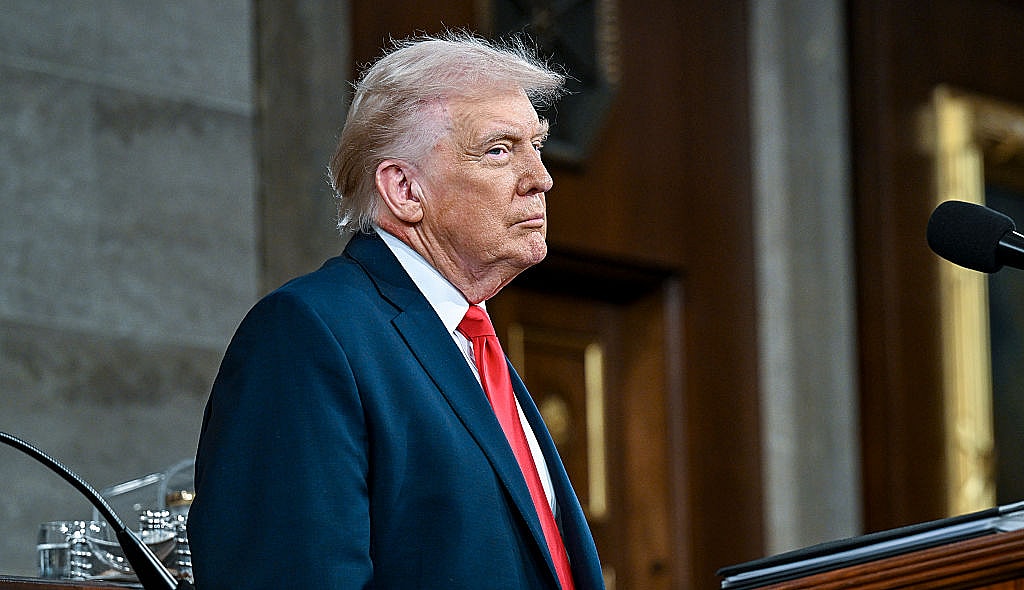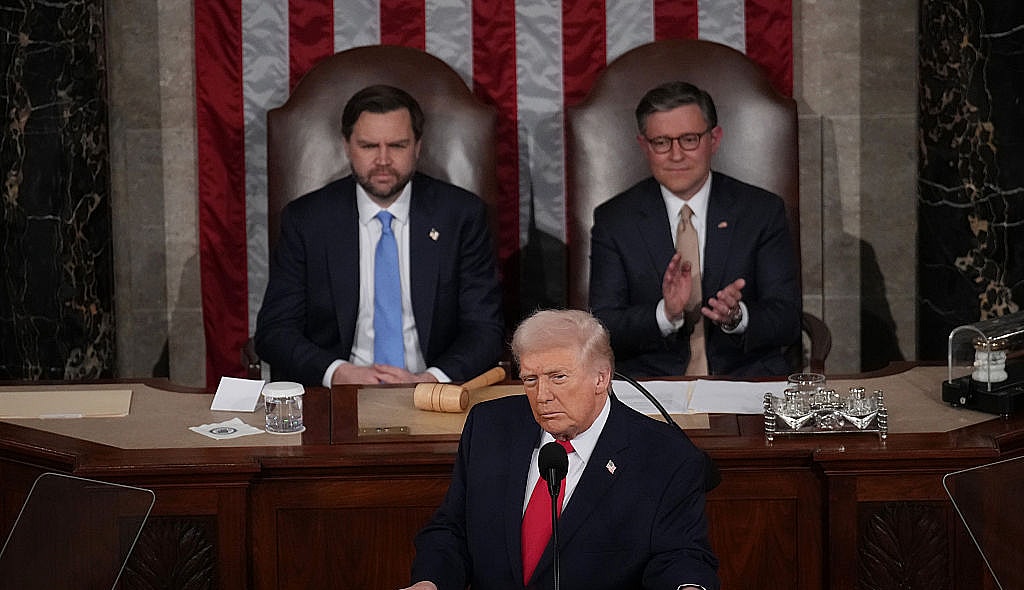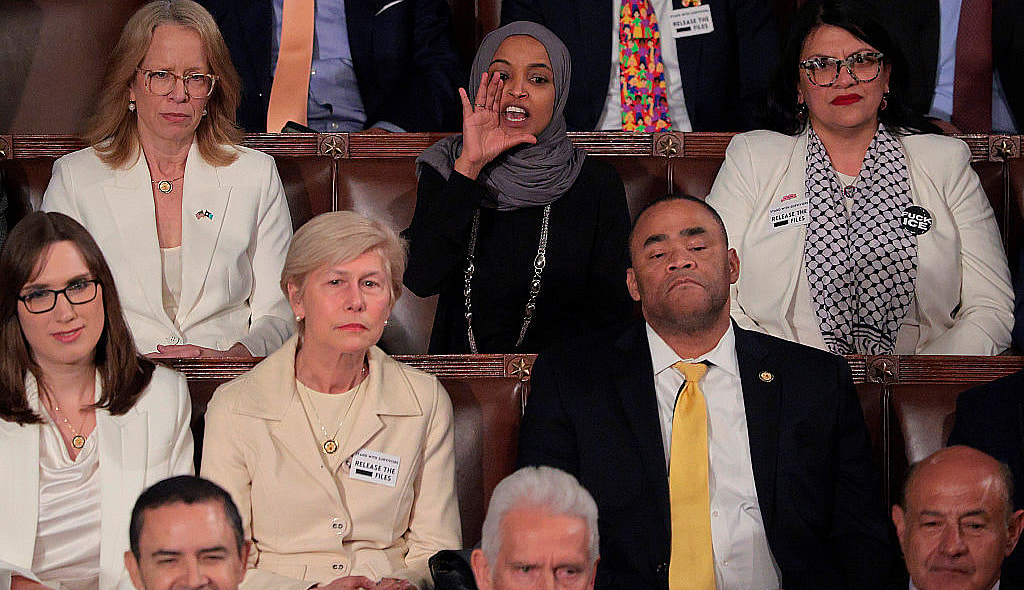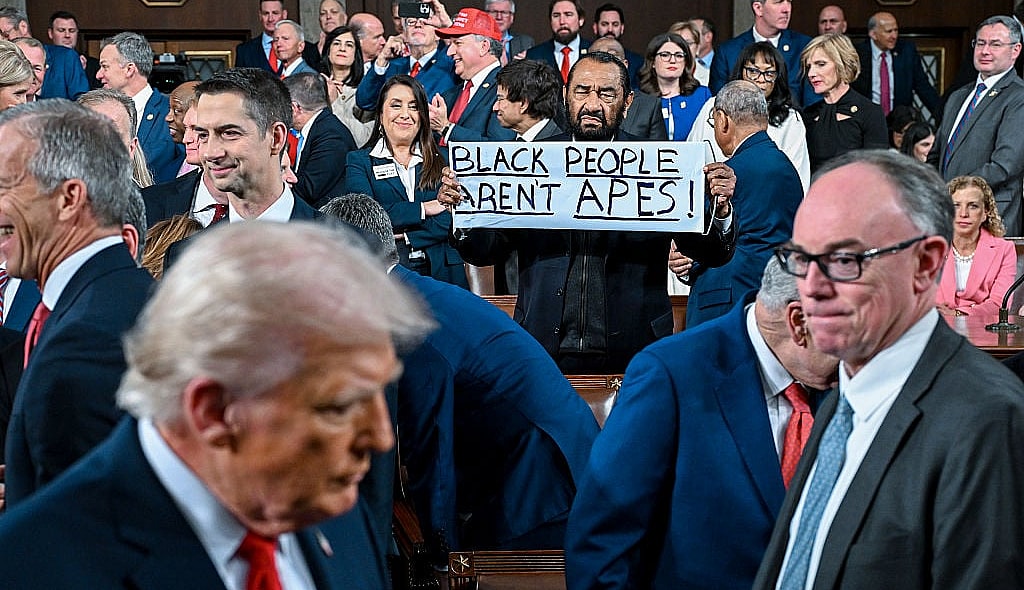In the days following Donald Trump’s criminal conviction for falsifying business records to conceal a sex scandal ahead of the 2016 election, the Republican presidential candidate and his allies have tried to use the 34-count guilty verdict to appeal to Black voters, particularly Black men.
Through surrogates like U.S. Senator Tim Scott, R-S.C., the Trump campaign has tried to draw a connection to Trump’s legal perils — including three other criminal indictments in three different jurisdictions — to the historic injustices Black Americans faced in the criminal justice system.
“As an African-American born and raised in the Deep South who had concerns about our justice system as it relates to race, I’m now seeing it play out from a partisan perspective,” Scott said during a CNN interview in reaction to Trump becoming the first former U.S. president to become a felon.
However, Black leaders and advocates have made clear that Trump is no friend to Black America. Moreover, they point out that Trump has dedicated his entire career as a businessman and politician to denigrating Black people — most especially Black men.
On the same day of the conviction, Bill Pruitt, a former producer of “The Apprentice,” revealed that Trump referred to Black finalist Kwame Jackson as the n-word during its finale taping in 2004. Most recently, Trump used incendiary language when referring to Manhattan’s first Black district attorney, Alvin Bragg, who successfully convicted him in the New York hush-money case, calling him “fat” and a “degenerate psychopath.”
“That’s who he is as a person, and I think it’s important for voters to remember that,” said Svante Myrick, president of the progressive advocacy group People For the American Way. He told theGrio, “Trump is an obvious and visible racist. He has clear racial animosity against Black people [and] he’s revealed that over decades.”
Before launching his successful campaign for president in 2015, many critics argued that Trump built a public reputation by personally attacking Black men and discriminating against Black tenants. As a New York real estate mogul, Trump settled a federal lawsuit accusing him of barring Black applicants from living in his residential properties. He also paid for a full-page newspaper ad in 1989 calling for the death penalty against the Central Park Five, a group of Black and brown teens accused of the rape and assault of a white female jogger.
“I want to hate these muggers and murderers … and I always will,” Trump wrote in the ad that bemoaned the “roving bands of wild criminals” on New York City’s streets.
As a politician, Trump sought to delegitimize Barack Obama, America’s first Black president. He spread conspiracy theories that Obama was not born in the U.S. and called for him to prove his citizenship. Trump also appeared to question Obama’s intelligence and qualifications to attend Columbia University and Harvard Law School, two Ivy League institutions.

Other Black male politicians on the receiving end of Trump’s ire included the late U.S. Rep. John Lewis, a civil rights hero, and the late U.S. Rep. Elijah Cummings, D-Md., whose majority-Black district in Baltimore Trump blasted as a “disgusting, rat- and rodent-infested mess.”
When Lewis died of pancreatic cancer in 2020, rather than express his condolences to the congressman’s family, Trump declined to answer a reporter’s question of whether he thought the original Freedom Rider was “impressive.” Instead, the sitting president recalled that Lewis “chose not to come to my inauguration.”
“There is no confusion of what he feels toward Black people. He has been consistently doing this, and we should not be confused about it,” said Michael Blake, a former Democratic National Committee vice chairman and Obama White House official. “The reality is we have to look at the continued life story of Donald Trump.”
Blake, who is CEO of the Kairos Democracy Project, told theGrio that Trump’s decades-long history of disparaging and delegitimizing Black men should be a reminder to Black voters in November that he is “the most dangerous, powerful candidate in generations” when it comes to the harms posed against Black Americans.
He added, “If you continue to attack us in words and you continue to attack us through policies, there is no reason [we] should reward him with our votes.”
Myrick of People For the American Way said Black voters must remember that, as president, Trump “did nothing to help the Black community.” He added, “In fact, he did many things to hurt the Black community.”
Recommended Stories
The progressive leader noted that Trump grossly mishandled the COVID-19 pandemic that disproportionately killed and harmed Black Americans.
“He downplayed and hindered the COVID response by withholding aid, specifically from blue states, which is where a ton of Black Americans live,” he maintained.
That same year, he recalled, “When there was mass widespread agreement on criminal justice reform and policing reforms, he used the national guard and the military to clear out [Black Lives Matter] protesters so he could hold the Bible upside down in front of a church for a photo op.”
Blake said a second Trump administration would be equally devastating for Black Americans.
“He just said, again, that he would eliminate the Department of Education. What does that mean for HBCUs and student loans?” he questioned.
Blake also noted that Trump vowed to “weaponize” the U.S. Department of Justice against his political opponents and suggested that he would likely come after DA Bragg as revenge for his New York conviction and New York Attorney General Letitia James, who successfully prosecuted Trump in a civil fraud case totaling nearly half a billion dollars in penalties.
“You have someone who is clearly showing you what he believes, and he will attack Black people if he wins,” said Blake. “And the way to denying that is making sure he doesn’t.”


